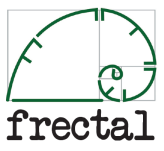Change and the pursuit of Value
If humans are striving for any change it is surely aimed at making things better. We must now look at the last key pattern amidst the complexity of change, the pursuit of value.
Now let me bring the term Value into this discussion. For value is another term that is bandied about a lot without clear definitions.
Value in many ways is a judgement call, and may be best considered as a balancing act between quality, risk, cost and time.
So high value goods or services should be high quality, low risk, low cost and low in time (e.g. short waiting time). (Though to achieve high quality may take more money and more time)…
On the other hand low value goods or services are low quality, high risk, high in cost and high in time (e.g. long waiting time).
In exploring value as a complex entity, the term “value for money” may be helpful here. Money has long been using as a bartering mechanism/yardstick for measuring the value of goods and services exchanged between people which was needed as civilisations emerged over time. While money is seen as purely a financial or numeric instrument it is the “value of money” that matters particularly. Hence the Oscar Wilder quote that “the cynic knows the price of everything and the value of nothing.”
Simple
In simple terms the mechanism of money has long been relatively easy to deal with, add, subtract etc, i.e. it can be treated like any of algebraic number. Hence its pre-eminence in the world and why it is so often tied into discussions of value.
There can be little doubt that money is perhaps one of the purest forms of incentive to facilitate change. After all the end recipient of money is then able to choose how to spend their money to furnish their own needs and wants.
Another simple elements than can be explored here in the context of value is time. In by gone years time was not seen as a particularly valuable thing, as men in the fields had lots of it. In recent years, time itself has become a precious commodity, hence the expression the “value of time”.
Complicated
If single measures of money or time are deemed too crude to measure value then mechanisms such as balanced scorecard are means to develop more complicated measures of value. By mixing a number of simple variables towards a more balanced approach should represent a more holistic measure of value from within an organisation.
As complicated measures these usually require a group for development, to represent a variety of perspectives.
Values such as Quality and Safety are still challenging to measure objectively and consistently, even within a complicated approach such as the balanced scorecard. While some measures of safety and risk can be translated into numerical values which can be scientifically analysed, measurements of quality may be the most challenging of all..
Complex
Quality as an attribute of value that often emerges after experience that measures of money, time and safety alone are not enough to give a balanced measure of value within a system. Quality is a perceptual and somewhat subjective attribute which may be understood differently by different people.
While again elements of what may be perceived as quality can be broken down into numeric values and analysed within a balanced scorecard framework, some are now advocating the more unorthodox approach of measuring value (inc quality) within complex systems using more narrative methods.
Chaos
Chaotic systems offers little means to measure value so therefore little or no measurable value to those involved within the chaotic systems.
They require a leader to emerge from within the chaos and demand better value from the system, therefore requiring efforts to tackle the complexity within..
Having explored some common patterns in change, we can now move on to harnessing those patterns together to achieve change..
References
Carolyn Ellis C (2008) “Beyond Measure: The Role of Stories, Conversations, and Personal Narratives in Quality of Life Research”, Journal of Medicine and The Person, September 2008, vol.6, number 3: 104-112
Greenhalgh, T, Russell, J, Swinglehurst, D (2005) “Narrative methods in quality improvement research” Qual Saf Health Care 2005;14:443-449
http://qshc.bmj.com/content/14/6/443.abstract
Snowden D, (2010) “Narrative Research”
http://www.cognitive-edge.com/articledetails.php?articleid=64
The Narrative Centre at University College London Hospitals NHS Trust
http://www.ucheducationcentre.org/thenarrativecentre.html





Leave a comment